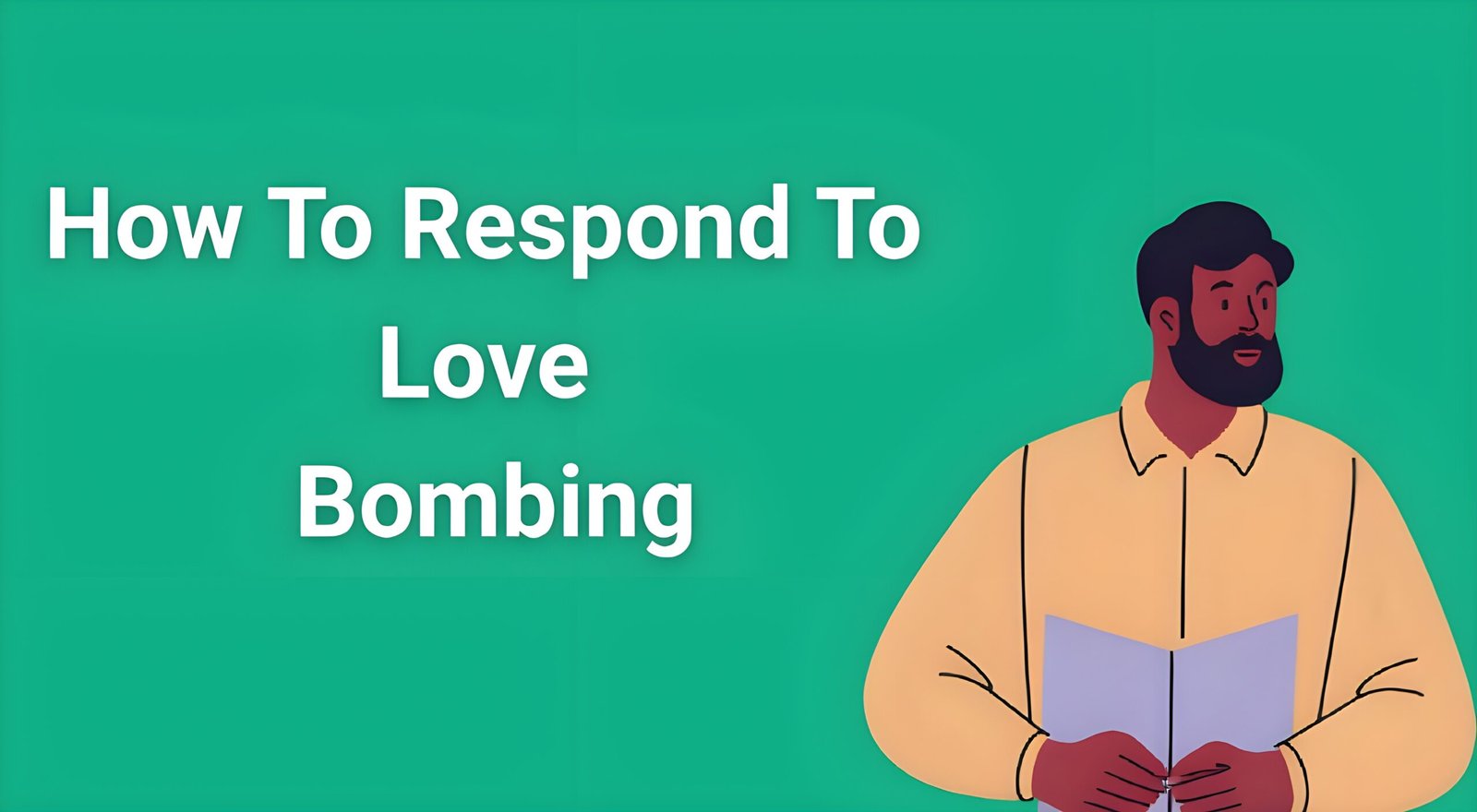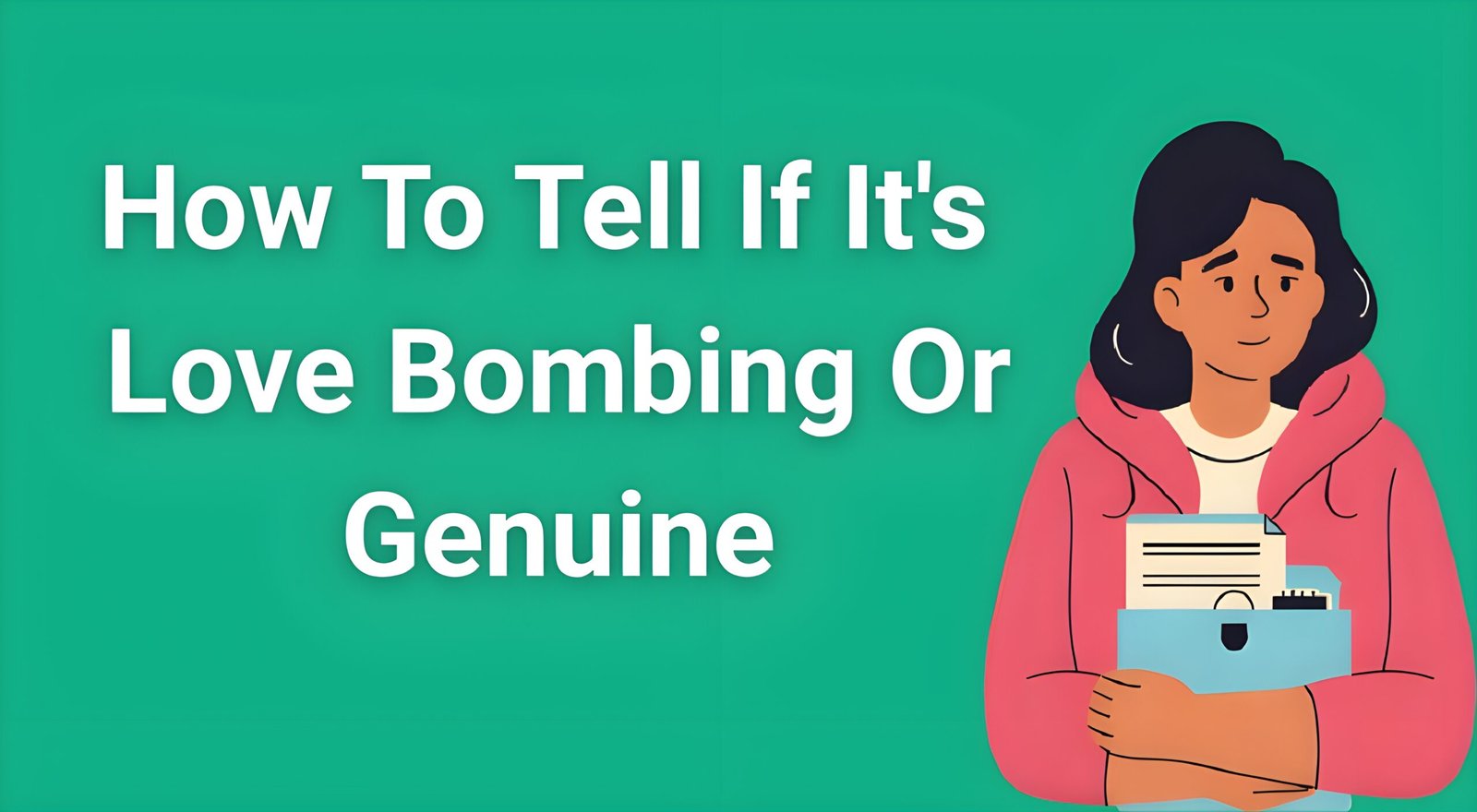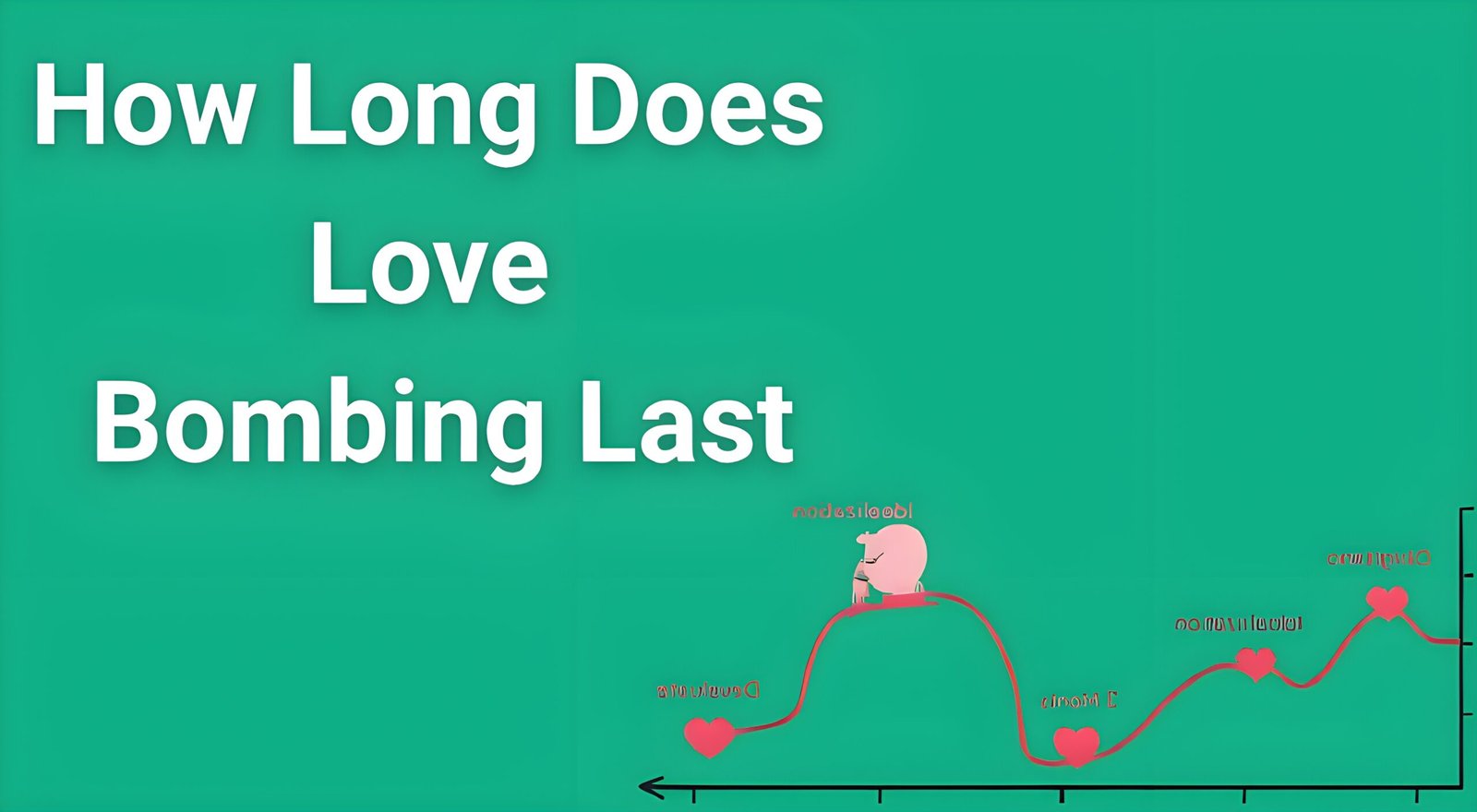When someone floods you with excessive attention, lavish gifts, and over-the-top declarations of love within days of meeting, learning how to respond to love bombing becomes crucial for your emotional safety. This manipulation tactic, designed to create dependency and control, requires immediate and strategic responses to protect yourself from what often escalates into psychological abuse.
- Understanding the Love Bombing Trap
- Strategy 1: Create Immediate Emotional Distance
- Strategy 2: Implement the Boundary Testing Protocol
- Strategy 3: Activate Your Support Network
- Strategy 4: Deploy Reality-Testing Techniques
- Strategy 5: Master the Strategic Slow-Down
- Strategy 6: Practice Emotional Self-Protection
- Strategy 7: Plan Your Strategic Exit
- When to Seek Professional Support
- Recognizing Your Strength and Moving Forward
- Frequently Asked Questions
Love bombing isn’t genuine affection—it’s a calculated strategy used by manipulators to overwhelm your defenses and fast-track emotional attachment. The key to responding effectively lies not just in recognizing the behavior, but in understanding how to protect yourself mentally and emotionally while navigating this dangerous territory.
Understanding the Love Bombing Trap
Love bombing creates an artificial high through excessive praise, constant communication, and overwhelming attention. Unlike healthy relationship development, love bombers accelerate intimacy at an unnatural pace, making statements like “you’re my soulmate” or “I’ve never felt this way before” within hours or days of meeting you.
This manipulation tactic specifically targets your emotional vulnerabilities. Love bombers are skilled at identifying what you need most—whether it’s validation, attention, or emotional connection—and then weaponizing those needs against you. The intensity feels intoxicating because it triggers powerful neurochemical responses, similar to addiction patterns.
The most insidious aspect of love bombing is how it primes you for future abuse. Once you’re emotionally dependent on the intense highs, the love bomber begins the devaluation phase, withdrawing affection and introducing criticism, control, and manipulation. This creates a trauma bond where you desperately try to return to those early magical moments.
Strategy 1: Create Immediate Emotional Distance
The moment you recognize love bombing patterns, your first response must be to create emotional distance. This doesn’t necessarily mean ending contact immediately, but rather protecting your emotional investment from escalating further.
Stop reciprocating the intensity level. When they send paragraph-long texts about your “deep connection,” respond with simple acknowledgments rather than matching their emotional energy. This serves two purposes: it prevents you from getting swept away in the fantasy, and it reveals their true intentions when they react to your measured responses.
Practice what psychologists call “emotional regulation” by consciously slowing down your responses. Instead of immediately returning calls or texts, create space between their contact and your reply. This breathing room allows your logical mind to process what’s happening without being overwhelmed by the emotional intensity they’re creating.
Document patterns objectively by writing down specific behaviors and your emotional responses. This creates clarity when manipulation techniques like gaslighting make you question your perceptions. Write observations like “sent 15 texts in 2 hours when I didn’t respond immediately” rather than emotional interpretations.
Strategy 2: Implement the Boundary Testing Protocol
Love bombers have an intense intolerance for boundaries because boundaries threaten their control. Use this knowledge strategically by implementing what survivors call the “boundary testing protocol”—deliberately setting small boundaries to observe their reactions.
Start with low-stakes boundaries such as “I prefer not to text after 10 PM” or “I need some time to process before discussing future plans.” A healthy person respects these boundaries, while a love bomber will push back, guilt-trip, or find ways to circumvent them entirely.
Pay attention to their response patterns when you assert any form of independence. Do they become defensive, angry, or manipulative when you spend time with friends? Do they guilt you for not being available 24/7? These reactions reveal their true agenda: control rather than genuine care for your wellbeing.
Escalate boundary testing gradually by asserting larger boundaries if smaller ones are violated. If they can’t respect basic communication preferences, they certainly won’t respect major life decisions or personal autonomy later in the relationship.
Strategy 3: Activate Your Support Network
Love bombers work to isolate you from outside perspectives because external voices threaten their narrative control. Counteract this by immediately strengthening connections with trusted friends and family members who can provide objective feedback about the relationship dynamics.
Share specific examples of concerning behavior with people you trust, rather than just general impressions. Say “He showed up at my workplace uninvited with expensive flowers after I mentioned needing space” instead of “He’s really romantic.” Concrete examples help others recognize manipulation patterns you might minimize.
Create accountability partnerships with friends who have permission to express concerns about your relationship. Give them explicit permission to point out red flags, and commit to listening without becoming defensive. Love bombing creates cognitive dissonance that makes it difficult to see clearly.
Maintain your existing social commitments and activities, even when the love bomber pressures you to prioritize the relationship above all else. This preservation of your independent life serves as both a reality check and a safety net if you need to exit the situation.
Strategy 4: Deploy Reality-Testing Techniques
Love bombing creates a distorted perception of reality where everything feels perfect and moving at the “right” pace. Combat this distortion by using deliberate reality-testing techniques that ground you in objective truth rather than manufactured emotions.
Question the timeline by asking yourself: “In healthy relationships I’ve witnessed, do people typically discuss marriage, children, or moving in together within the first few weeks?” Use the experiences of coupled friends and family members as benchmarks for normal relationship progression.
Practice the “friend test” by imagining how you would react if a friend described identical behavior from their new partner. Would you be concerned if your best friend’s date of two weeks was already talking about their future children together? Trust your instincts for others and apply that same wisdom to your own situation.
Research love bombing tactics and manipulation techniques to understand the psychological mechanisms at play. Knowledge becomes power when you can identify specific manipulation strategies like future faking, mirroring, and intermittent reinforcement as they’re happening.
Document red flags in a private journal, noting specific incidents with dates and your emotional responses. This creates an objective record you can review when the love bomber attempts to minimize their behavior or convince you that you’re “overreacting.”
Strategy 5: Master the Strategic Slow-Down
One of the most effective responses to love bombing is implementing what experts call the “strategic slow-down”—deliberately decelerating the relationship pace regardless of their pressure to accelerate everything.
Refuse to discuss future plans beyond the immediate present. When they bring up vacations six months away or meeting their family next week, respond with phrases like “I prefer to focus on getting to know each other right now” or “I take relationships one step at a time.”
Create mandatory waiting periods for major relationship milestones. Decide in advance that you won’t consider exclusivity for at least 2-3 months, won’t meet each other’s families for several months, and won’t discuss moving in together for at least six months. These timelines protect you from making emotionally-driven decisions during the love bombing phase.
Use the slow-down period to observe their behavior patterns across different situations. How do they treat service workers? How do they handle stress? How do they react when they don’t get their way? Love bombers can only maintain their perfect facade for limited periods.
Implement space requirements by maintaining your own living situation, social activities, and personal time regardless of their desire to merge lives immediately. This independence preserves your ability to think clearly and maintains escape routes if needed.
Strategy 6: Practice Emotional Self-Protection
Responding to love bombing requires protecting yourself emotionally while gathering information about their true character. This means learning to enjoy positive moments without becoming emotionally dependent on them.
Develop what psychologists call “emotional detachment”—the ability to experience pleasant interactions without investing your entire emotional wellbeing in the relationship’s outcome. Enjoy dinner together, but don’t let it become evidence that you’ve found your soulmate.
Build emotional resilience by maintaining other sources of validation and connection. Continue pursuing personal goals, hobbies, and friendships that exist independently of this relationship. The love bomber wants to become your primary source of emotional fulfillment, which creates dangerous dependency.
Practice mindfulness techniques to stay grounded in present reality rather than getting swept away by fantasies about your future together. When you catch yourself daydreaming about the life they’re promising, return your attention to their actual behavior and character as demonstrated through actions.
Create emotional preparation for the devaluation phase that typically follows love bombing. Understanding that the intense positive attention is temporary helps you avoid the devastating shock when their true personality emerges.
Strategy 7: Plan Your Strategic Exit
Whether you’re still evaluating the situation or have decided to end contact, having a clear exit strategy empowers you to leave safely and completely when necessary. Love bombers often escalate manipulative behavior when they sense you’re pulling away.
Develop safety protocols for ending the relationship, especially if the love bomber has shown any controlling or aggressive tendencies. This includes securing your living situation, financial independence, and support network before initiating the breakup conversation.
Prepare for hoovering attempts—the desperate strategies love bombers use to pull you back in after you’ve distanced yourself. This might include apologies, promises to change, gifts, or creating emergencies that “require” your presence. Understanding these tactics in advance helps you resist them.
Plan for the emotional aftermath of ending a love bombing relationship. Many survivors experience grief, self-doubt, and trauma responses even when they know leaving was the right choice. Arrange for professional support or counseling to help process these complex emotions.
Document all concerning behavior in case you need evidence for restraining orders or other legal protections. Love bombers who face complete rejection sometimes escalate to stalking or harassment, making documentation crucial for your safety.
When to Seek Professional Support
While these strategies provide immediate responses to love bombing situations, some circumstances require professional intervention. Consider seeking help from trauma-informed therapists who understand manipulation dynamics when you’re experiencing confusion about your own perceptions, struggling with self-doubt, or finding it difficult to trust your instincts.
For those who recognize they’re in a pattern of attracting manipulative partners, specialized programs can help identify underlying vulnerabilities and develop stronger protective instincts. The 30 Day Trauma Bond Recovery Workbook offers neurological rewiring techniques specifically designed to break the addiction-like attachment that love bombing creates.
If you’re currently trapped in a situation where leaving isn’t immediately possible due to safety concerns, financial dependency, or other complications, resources like “How to Survive When You Can’t Leave Yet” provide strategies for protecting yourself emotionally and physically while planning your eventual escape.
For immediate clarity about whether you’re experiencing love bombing or other forms of narcissistic abuse, consider getting a professional assessment through the Narcissistic Abuse Clarity Report, which provides expert analysis of your specific situation within 72 hours.
Recognizing Your Strength and Moving Forward
Learning how to respond to love bombing effectively requires tremendous courage and self-trust. The fact that you’re seeking information about these strategies demonstrates your inner wisdom recognizing that something isn’t right, even when everything feels intense and exciting.
Remember that love bombing feels so compelling because it exploits normal human needs for connection, validation, and affection. Falling for these tactics doesn’t indicate weakness or naivety—it indicates that you have the capacity for love and trust that manipulators specifically target.
Recovering from love bombing experiences often leaves people with enhanced protective instincts and clearer boundaries in future relationships. Many survivors report that while the experience was traumatic, it ultimately led them to develop stronger self-awareness and better relationship skills.
Frequently Asked Questions
How quickly should I respond to suspected love bombing? .
Act immediately when you recognize the patterns. The longer love bombing continues, the stronger the emotional attachment becomes, making it exponentially harder to think clearly and respond rationally.
What if I’m wrong and they’re genuinely interested?
Healthy people respect boundaries, accept slower relationship pacing, and encourage you to maintain your independent life. If someone truly cares about you, they won’t be threatened by reasonable caution.
Can love bombers change their behavior?
While change is theoretically possible, it requires extensive therapy and genuine desire to change. The pattern usually continues or escalates rather than improving, making it dangerous to wait for transformation.
How do I know if I’m being too paranoid?
Trust your instincts. If behavior feels overwhelming, too intense, or “too good to be true,” it probably is. It’s better to be cautious with someone who turns out to be genuine than vulnerable with someone who’s manipulating you.
What if they threaten self-harm when I create distance?
Threats of self-harm are manipulation tactics designed to control your behavior. Contact emergency services if you believe someone is in immediate danger, but don’t let these threats prevent you from protecting yourself.
Responding to love bombing requires both immediate action and long-term emotional protection strategies. The seven strategies outlined here provide a comprehensive framework for maintaining your safety and sanity while navigating these dangerous relationship dynamics. Remember: your wellbeing matters more than anyone’s feelings about your boundaries, and protecting yourself from manipulation is always the right choice.






